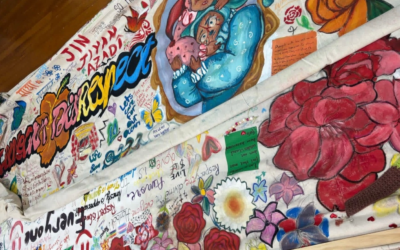Over 500 university students marched from Sydney’s Town Hall to Parliament House to protest government inaction on climate change.
Macquarie University student, Sarah Jane Murray, 20, attended the event to express her overall concern for the environment and negative impacts caused by human decisions.
“I expect more awareness and coverage towards the climate crisis, and I hope that the march contributes to showing individuals with influence [politicians, corporations] that we need real action towards stopping Adani and the climate emergency,” Murray stated.
Uni Students for Climate Action hosted the event and are encouraging millennials to speak up about climate change and the impacts it may have on their generation. This includes campaigning at university campuses and participating in past strikes including the infamous climate action walkout, “SchoolStrike4Climate”, with many more protests planned to come in the future.
“Despite the overwhelming consensus in Australia that urgent action is needed, both major political parties are dragging their feet,” they said on their Facebook event.
The Adani project was a focus of the protest, especially after its approval on the 13th of June 2019.
Some are arguing that coal mines like this will provide more jobs. Australia currently has an unemployment rate of 5.7%, and Adani promised to make 1,500 direct jobs and 6,750 indirect jobs. However, according to the Guardian, Adani will only provide 1,000 positions as opposed to the 10,000 they proposed.

Although employment is the main argument, The Australian Conservation Foundation states that more job openings can occur through helping the environment with employment in providing clean water, generating renewable energy, eco-friendly construction and health. Taryn Sadler from The Australian Conservation Foundation said, “Yes people need jobs – but good jobs with a future that don’t harm their health or damage the air we breathe or the water we drink.”
#StopAdani has been used on social media to spread awareness about the severe damage this project can have upon the environment.
According to studies conducted by the United Nations, there are only 11 years left to prevent irreversible and severe damage on the earth. Former President of the General Assembly, President María Fernanda Espinosa Garcés (Ecuador) said in a UN meeting in regards to a climate emergency, held this year in March, said, “that we are the last generation that can prevent irreparable damage to our planet.”
“Together, we can and must solve this, and in doing so, build a world that’s good for everyone and every living thing. We can power our country with clean, renewable energy, rapidly phase out coal and help communities transition to jobs with a future. We can make business a force for good, revitalise our faltering democracy and repair the damage to our living planet,” said Sadler.
Subsequently, the Australian Conservation Foundation, argues that, “Our governments need to step up and lead the way. To plan and prepare communities for this inevitability, and make the transition from coal to clean energy fair and equitable. To quickly turn the tide on the climate crisis and make millions of good jobs along the way.”
The Australian Conservation Foundation encourages all students to join them on 20 September in a massive global day of action.
“Students across the world are building a huge movement to call on leaders to step up and do more to solve the climate and extinction,” said Sadler.



